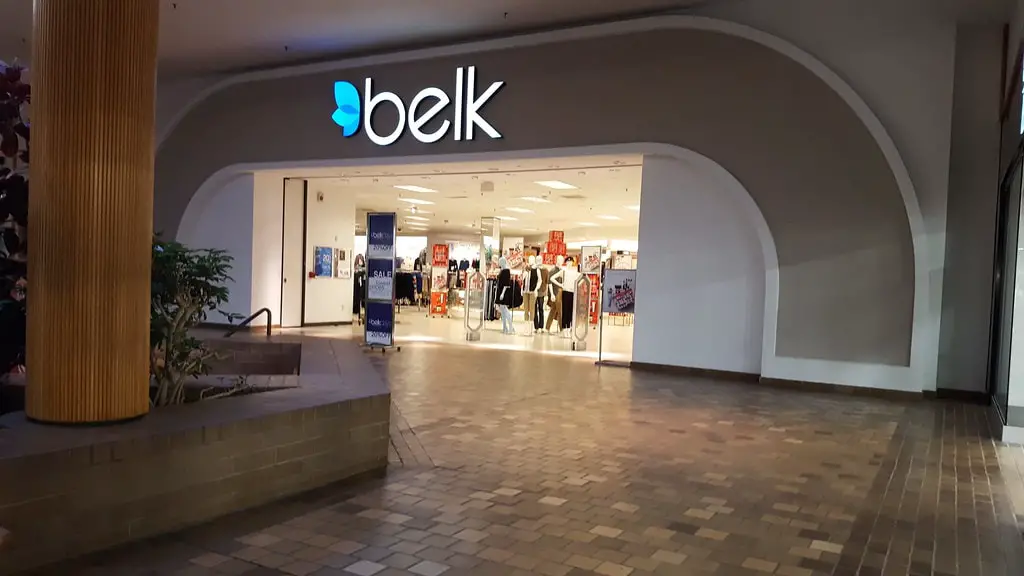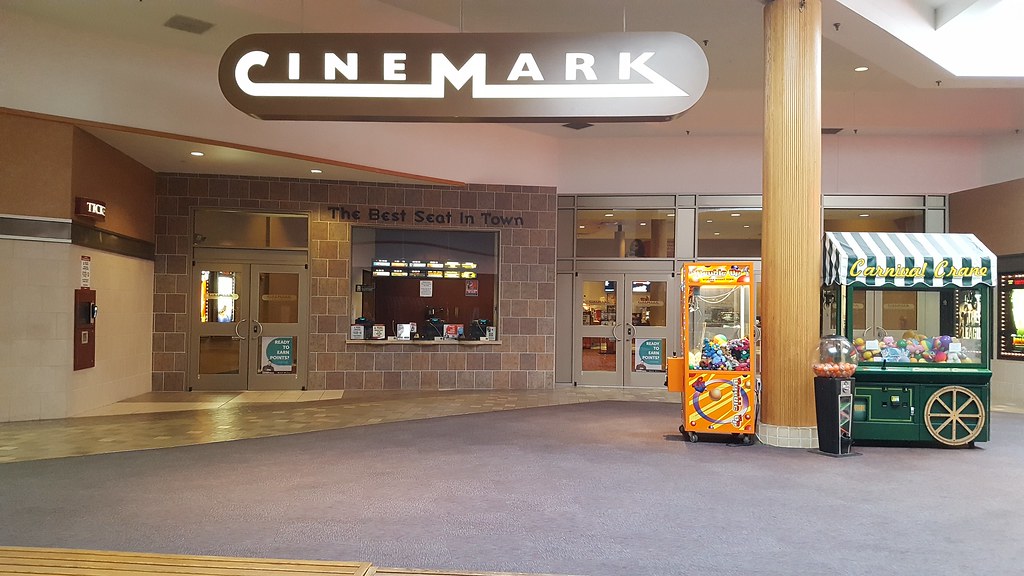Evolution of Asheboro Mall
Asheboro Mall, initially named Randolph Mall, entered Asheboro, North Carolina's commercial landscape in 1982. This inauguration celebrated a new chapter in the city's retail narrative, setting the stage for a shopping destination that would evolve through the decades.
The mall's conception was the brainchild of developers Richard E. Jacobs and David Hocker, who envisioned a retail hub catering to the Asheboro community's diverse needs.
The mall's early years were characterized by a vibrant tenant mix, with Woolco and Belk-Yates anchoring the retail space. These initial tenants laid the foundation for a bustling shopping environment, drawing shoppers across the region.
However, the retail scene is ever-evolving, and the mall was no exception. The transition of Woolco to Roses marked the mall's first major tenant evolution.
Despite Roses' closure in August 2000, the mall's adaptability was evident as Belk seized the opportunity to expand its footprint, enhance its offerings, and solidify its position as a key player in the mall.
Ownership transitions often herald a new direction, which was when CBL & Associates Properties acquired the mall from the Richard E. Jacobs Group in 2001. This change in stewardship brought a fresh perspective to the mall's strategic direction.
The early 2000s saw a flurry of activity, with Dillard's opening in the space vacated by Roses and Books-A-Million creating a literary oasis in the spot left by Eckerd Drug. These shifts reflected the mall's commitment to diversifying its portfolio and enhancing the shopping experience.
As the retail landscape continued to shift, the mall's ability to adapt and reinvent itself remained a constant. The closure of key stores like Dillard's and the introduction of new tenants such as Ulta Beauty and Ross Dress for Less in the spaces they vacated underscored the mall's resilience.
This transition period was about filling vacant spaces and strategically aligning with consumer trends and preferences.
Today, the Asheboro Mall adapts to the industry's ebbs and flows while maintaining its status as a central shopping destination.
For residents and visitors seeking things to do in Asheboro, North Carolina, the mall offers a blend of retail, dining, and entertainment options, evolving with the times yet remaining a steadfast symbol of community and commerce.
The Decline and Attempts at Revival
The narrative of Asheboro Mall during the early 2010s reflects a broader national trend, where traditional shopping malls faced unprecedented challenges.
The departure of Dillard's in 2013, a store that had once been a beacon for shoppers, marked a significant turning point. This closure was not just a loss of a tenant but a symbol of the shifting retail landscape, where consumer preferences and shopping patterns were rapidly evolving.
The challenges continued in 2015 when JCPenney, another anchor tenant, announced its departure as part of a nationwide closure of underperforming stores.
This exit left a void in the mall's tenant composition, raising concerns about its future viability. However, in the spirit of resilience and adaptation, Ulta Beauty and Ross Dress for Less soon filled this void.
These new tenants represented a strategic shift, aligning with contemporary retail trends and consumer demands for value and convenience.

Despite these efforts to rejuvenate the tenant mix, another blow came in 2017 when Sears, a long-standing anchor, announced its closure, scheduled for September 2018.
This was part of a larger corporate strategy to close 72 stores nationwide, reflecting department stores' broader challenges in the digital age.
Sears's departure left Belk and Dunham's Sports as the remaining anchors, a stark reminder of the mall's changing dynamics.
In response to these challenges, Hull Property Group, the mall's owner since December 2016, embarked on an ambitious renovation project in 2020.
This project was a facelift and a comprehensive overhaul to reimagine the mall's space and offerings. The demolition of the former Sears structure paved the way for a new entrance and plaza to accommodate outward-facing stores.
This move signified a shift towards a more open and accessible retail environment. Adding a new entrance near Dunham Sports, connecting to the recently renovated Cinemark theater, was a strategic move to enhance the mall's entertainment offerings.
Interior improvements, including new carpeting, lighting, and a redesigned ceiling, were part of a broader effort to create a more inviting and modern shopping atmosphere.
The transformation of Randolph Mall, culminating in its renaming to Asheboro Mall in April 2021, was a testament to Hull Property Group's commitment to revitalizing a once-thriving shopping destination.
These efforts reflected an understanding that in the face of adversity, innovation and adaptation are key to survival and growth in the ever-evolving retail landscape.

The Current State of Asheboro Mall
As of 2024, Asheboro Mall is a testament to the retail space's attempt to adapt to changing consumer behaviors and market trends.
Managed by Hull Property Group, the mall has undergone significant transformations, positioning itself as a contemporary shopping destination in Asheboro, North Carolina.
The mall's current tenant roster reflects a strategic mix of retail, service, and dining options, catering to various preferences and needs.
The retail landscape within the mall is eclectic, featuring only 30 stores and services. Notable tenants include national and regional brands such as Claire's, Five Below, American Eagle Outfitters, and Ross Dress for Less, each offering a unique shopping experience.
Urban Trends, Aeropostale, Rue 21, and Maurices add to the fashion-forward offerings, while specialty stores like Suits to Impress and Kay Jewelers cater to specific consumer needs.
Belk, an original anchor tenant, continues to provide a sense of continuity and tradition amidst the evolving retail mix.
The mall's commitment to providing a comprehensive shopping experience is further exemplified by its range of service-oriented and entertainment options.
The Pier Arcade and Cinemark offer leisure and entertainment, creating a multi-dimensional shopping environment.
Including service providers such as Aspen Dental (Outparcel), T-Mobile, and Wells Fargo (Outparcel) ensures that visitors' diverse needs are met, making the mall not just a place to shop but a community hub.
Asheboro Mall offers a few dining options to satisfy tastes. Fast-food favorites like Chick-fil-A and Wendy's (Outparcel) provide quick and familiar options, while Gorilla Pizza and Jade Express introduce diverse culinary flavors.

Anchor Stores: Pillars of Asheboro Mall
The anchor stores at Asheboro Mall have been pivotal in defining the mall's identity and consistently drawing shoppers.
Belk, Dunham's Sports, Ross Dress for Less, and Cinemark are the cornerstone establishments, each contributing uniquely to the mall's commercial success and appeal.
Belk has been a part of Asheboro Mall since its inception in 1982, evolving alongside the mall. As one of the original anchor tenants, Belk underwent significant expansion in 2000, reinforcing its commitment to the Asheboro community.
This department store continues to offer a wide range of clothing, accessories, and home goods, catering to the needs of families and fashion enthusiasts alike.
Dunham's Sports entered the mall's retail landscape in 2013, filling the space left by Dillard's. As a comprehensive sports goods and outdoor gear retailer, Dunham's Sports has become a go-to destination for fitness enthusiasts and outdoor adventurers.
Its presence underscores the mall's strategy to diversify its offerings and cater to its patrons' lifestyle needs.
Ross Dress for Less was introduced to the mall following the closure of JCPenney in 2015. As a retailer specializing in off-price apparel and home fashion, Ross added a new dimension to the mall's retail mix by offering brand-name goods at discounted prices.
This strategic addition aligned with consumer trends favoring value and affordability, further enhancing the mall's appeal.
Cinemark, a motion picture exhibition industry leader, adds entertainment to the mall, drawing movie-goers and enhancing the overall visitor experience.
The recent renovation and modernization of the Cinemark theater at Asheboro Mall reflect the mall's commitment to providing high-quality entertainment options and staying abreast of the latest technological advancements in cinema.
Together, these anchor stores form the backbone of Asheboro Mall, each crucially attracting and retaining customers. Their diverse offerings ensure that the mall remains a shopping and entertainment center.

Fostering Small Business Growth: The American Dream Project at Asheboro Mall
In 2023, Asheboro Mall became a beacon of hope and opportunity for small businesses through the innovative American Dream Project. This initiative, spearheaded by Hull Property Group, aimed to revitalize malls in smaller markets by filling vacant spaces with vibrant small businesses.
The project offered entrepreneurs a unique opportunity to bring their dreams to life by providing them with a brick-and-mortar storefront during the crucial holiday season.
Olive Peach Boutique emerged as a shining example of the project. As the second winner for the Asheboro Mall location, the boutique brought a fresh and unique retail experience to the mall.
Olive Peach Boutique filled a niche in Randolph County, specializing in children's clothing and mommy-and-daddy matching sets. It also featured a distinctive balloon.
The project offered comprehensive support to the selected businesses, including a retail space from October through December, financial assistance for design and buildout, and access to a team of graphic designers and marketing professionals.
This holistic approach facilitated the physical setup of the stores and ensured that the businesses had a strong foundation for success.
Asheboro Mall's involvement in the American Dream Project reflects its commitment to community development and economic revitalization.
By supporting small businesses and fostering entrepreneurship, the mall is enhancing its retail landscape and contributing to the vibrancy and dynamism of the local economy.
Furthermore, the mall has evolved into more than just a shopping destination. The Asheboro Water Department found a new home within the mall, benefiting from the ample parking space and accessible location.
This strategic move optimized the department's operational efficiency and increased foot traffic to the mall, creating a relationship between the city's administrative functions and the commercial ecosystem.
